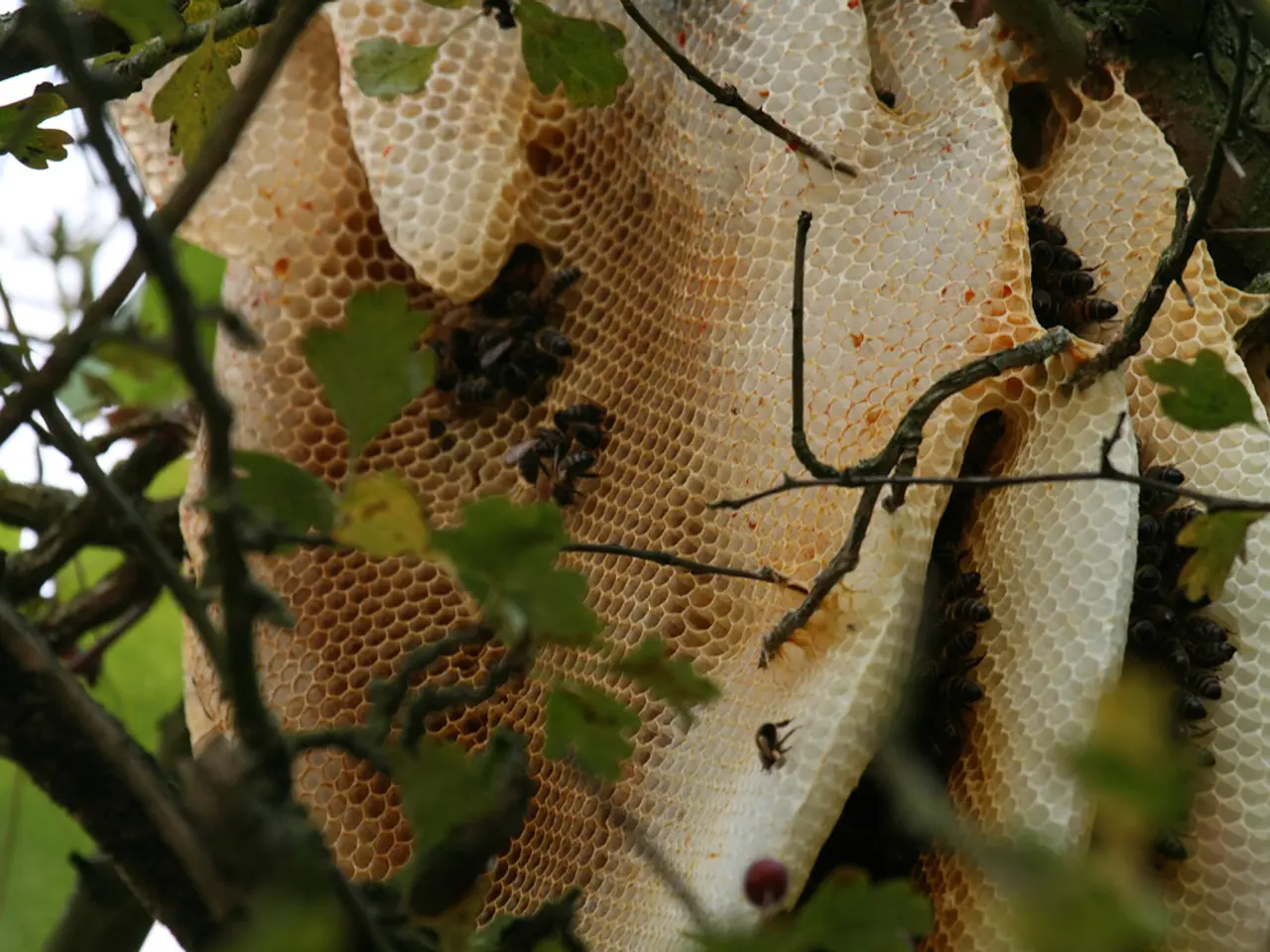Beekeepers in every vineyard: Allegrini Vineyards promotes eco-friendly farming practices
In the heart of Italy's Valpolicella region, Allegrini Wines has been making a name for itself by prioritizing sustainability and biodiversity in its vineyard practices. While specific details about a named "Allegrini Wines biodiversity and sustainability project" are scarce, the general approach the company and similar producers are taking can be described.
The company's vineyards, spanning approximately 150 hectares, are surrounded by a rich tapestry of meadows, arable land, dry stone walls, olive groves, and wooded areas. This diverse landscape, coupled with the high-altitude vineyards (located between 320 and 520 meters above sea level), provides an ideal habitat for a variety of insects and small animals.
In 2017, a photographer working in the company's vineyards noticed this biodiversity firsthand, sparking the start of a sustainability project that has since evolved. The theme of biodiversity was introduced, and the company began cataloging these findings.
Francesco Allegrini, the CEO, has been working on the protection of biodiversity within the company for some time. As part of this effort, Allegrini Wines has received Beekeeping certification, with each individual vineyard equipped with its own beehive. The company is also producing its own honey.
The company's sustainability project has culminated in the Biodiversity Friend certification, a branch of the broader sustainability certification Equalitas. This certification signifies Allegrini's commitment to reducing phytosanitary treatments in the vineyards, which favours the conservation of biodiversity.
In addition, Allegrini Wines is recovering water from company wells for use in the vineyards, a move towards water conservation that is becoming increasingly important in the face of climate change and environmental pressures.
Looking to the future, Allegrini Wines aims to complete a new high-tech, low-impact cantina designed to strengthen enoturism by 2028. The company is also focusing on climate adaptation, innovation, and cultural projects that link wine, art, and landscape, enhancing local identity and sustainable tourism.
In 2024, Allegrini Wines produced 2.3 million bottles, with 850,000 bottles under the Allegrini label and the rest under the Corte Giara brand. The company recorded a turnover of 20 million euros, with 50% of the revenue coming from foreign markets, including the USA, UK, and Germany.
While specific details about Allegrini's sustainability project are not available, it is clear that the company is committed to environmental stewardship, climate resilience, and innovative vineyard management. For precise data on Allegrini’s specific project timelines, certifications, and future strategies, direct information from the company would be required.
- Allegrini Wines' vineyards, encompassing around 150 hectares and housing a rich assortment of meadows, arable land, and wooded areas, serve as a conducive environment for various insects and small animals, fostering biodiversity.
- The Allegrini Wines' sustainability project, initially sparked in 2017, has transitioned from a focus on biodiversity to a broader commitment to environmental stewardship, with the company striving to reduce phytosanitary treatments and conserve water resources.
- In harmony with its sustainable ethos, Allegrini Wines has initiated initiatives such as Beekeeping certification, equipping each vineyard with a beehive and producing its own honey, signifying its dedication to sustainable living.
- The company's efforts in the realm of sustainability have culminated in achieving the Biodiversity Friend certification, a branch under the broader sustainability certification, Equalitas. This certification underscores Allegrini's commitment to promoting environmental science and climate-change mitigation.
- In the realms of home-and-garden, business, and lifestyle, Allegrini Wines, with its focus on sustainable living, aims to lead by example, embracing small-business strategies, incorporating energy-efficient technology, and fostering a strong connection between food-and-drink, art, and the local environment.




